Wei-Shih Yang
Large-Scale Joint Topic, Sentiment & User Preference Analysis for Online Reviews
Jan 14, 2019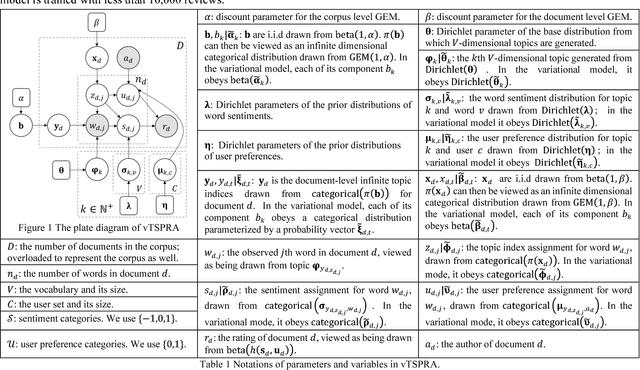
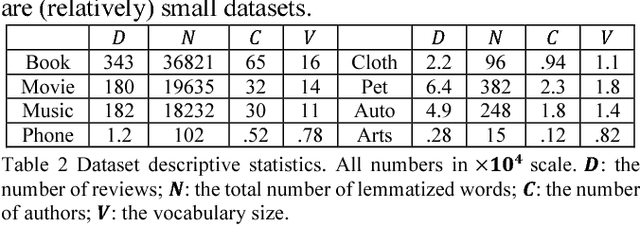
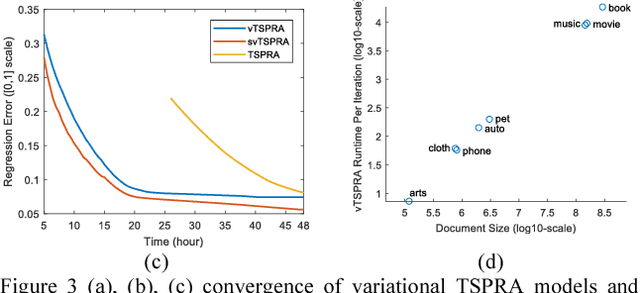
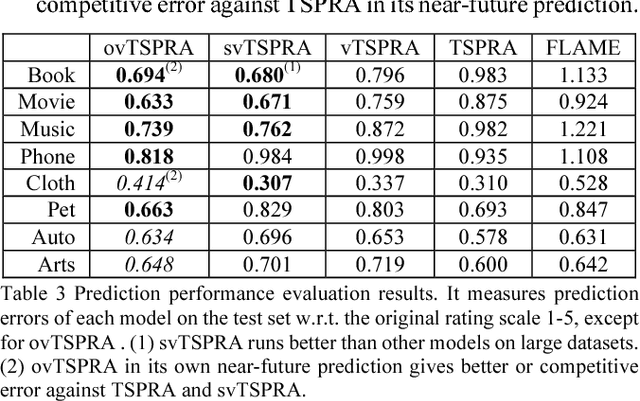
Abstract:This paper presents a non-trivial reconstruction of a previous joint topic-sentiment-preference review model TSPRA with stick-breaking representation under the framework of variational inference (VI) and stochastic variational inference (SVI). TSPRA is a Gibbs Sampling based model that solves topics, word sentiments and user preferences altogether and has been shown to achieve good performance, but for large data set it can only learn from a relatively small sample. We develop the variational models vTSPRA and svTSPRA to improve the time use, and our new approach is capable of processing millions of reviews. We rebuild the generative process, improve the rating regression, solve and present the coordinate-ascent updates of variational parameters, and show the time complexity of each iteration is theoretically linear to the corpus size, and the experiments on Amazon data sets show it converges faster than TSPRA and attains better results given the same amount of time. In addition, we tune svTSPRA into an online algorithm ovTSPRA that can monitor oscillations of sentiment and preference overtime. Some interesting fluctuations are captured and possible explanations are provided. The results give strong visual evidence that user preference is better treated as an independent factor from sentiment.
Fast Botnet Detection From Streaming Logs Using Online Lanczos Method
Dec 19, 2018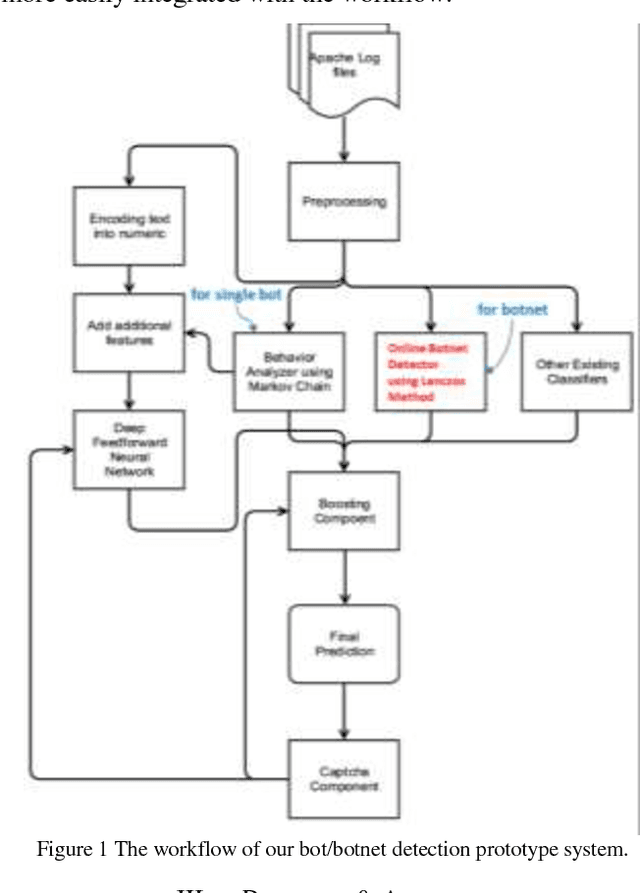
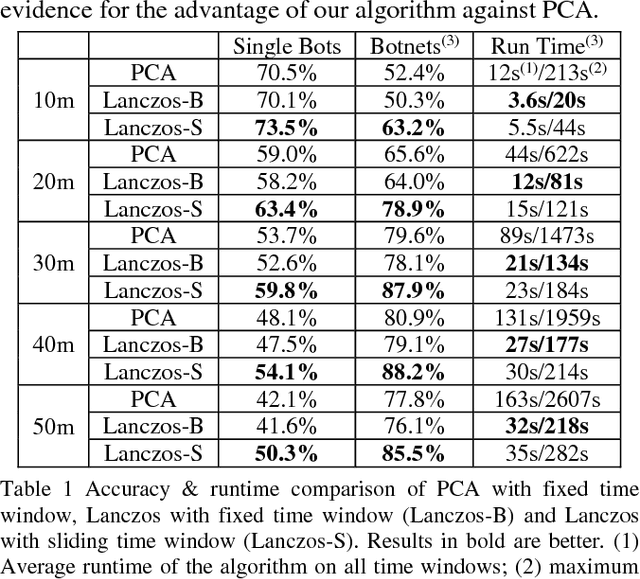
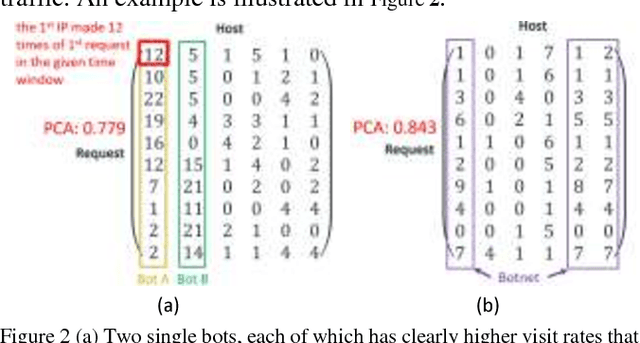

Abstract:Botnet, a group of coordinated bots, is becoming the main platform of malicious Internet activities like DDOS, click fraud, web scraping, spam/rumor distribution, etc. This paper focuses on design and experiment of a new approach for botnet detection from streaming web server logs, motivated by its wide applicability, real-time protection capability, ease of use and better security of sensitive data. Our algorithm is inspired by a Principal Component Analysis (PCA) to capture correlation in data, and we are first to recognize and adapt Lanczos method to improve the time complexity of PCA-based botnet detection from cubic to sub-cubic, which enables us to more accurately and sensitively detect botnets with sliding time windows rather than fixed time windows. We contribute a generalized online correlation matrix update formula, and a new termination condition for Lanczos iteration for our purpose based on error bound and non-decreasing eigenvalues of symmetric matrices. On our dataset of an ecommerce website logs, experiments show the time cost of Lanczos method with different time windows are consistently only 20% to 25% of PCA.
 Add to Chrome
Add to Chrome Add to Firefox
Add to Firefox Add to Edge
Add to Edge